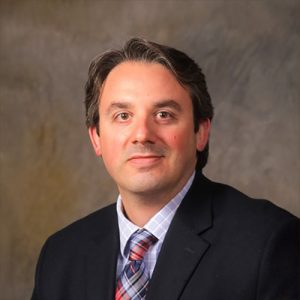Dealing with Dementia: Alzheimer’s Disease and Other Neurocognitive Disorders
This 6 week intensive workshop will enable an in-depth exploration of the neuropathological and psychosocial attributes of the full array of dementing disorders; the diagnostic evaluation components and the life-changing impacts of progressive symptoms upon patients and their families will be covered.
Dementia will be analyzed against a backdrop of environmental conditions and social influences, formal resources and informal support in order to appropriately respond to the needs of older adults and their caregivers.
This presentation will cover the best practices in dementia care and highlight communication techniques: pharmacological and non-pharmacological treatments, and environmental enhancements. The goals of preserving dignity and supporting quality of life will be promoted as priorities in discussions of strengths-based and person-centered care.
Learn more about receiving your Postgraduate Certificate in Mental Health and Aging.
Dates and Times
All workshops will take place on Fridays from 9:00am – 12:00 pm:
- September 4, 2026
- September 11, 2026
- September 18, 2026
- September 25, 2026
- October 2, 2026
- October 9, 2026
Tuition
- $400: General Registration Fee
- $290: Alumni Fee
Neuropathology and Symptomology
Session 1 and 2: September 4 and September 11, 2026
Learning Objectives
Students will understand the clinical practice implications of:
- Assessment procedures and diagnostic criteria for neurocognitive disorder.
- Bio-psycho-social-environmental assessments of patient and family needs throughout the progression of neurocognitive disorder.
- Differences in etiological and pathological traits of distinct diseases which cause neurocognitive disorder.
- Progressive intellectual symptoms of distinct diseases which cause neurocognitive disorder.
- Progressive psychiatric and behavioral symptoms of distinct diseases which cause neurocognitive disorder.
- Progressive social and psychological impacts of distinct diseases which cause neurocognitive disorder.
Care and Communication
Sessions 3 and 4: September 18 and September 25, 2026
Learning Objectives
Students will understand the clinical practice implications of:
- Strategies for supporting functional capacity in instrumental and basic activities of daily living.
- Person-centered strengths-based care for clients living with neurocognitive disorder.
- Cultural humility in care planning and service delivery as well as in the critical assessment of care quality across settings.
- Communication techniques which are effective with clients living with neurocognitive disorder.
- Using empathy, reflection and interpersonal skills to promote the personhood of diverse clients confronting neurocognitive disorder.
- Using inter-professional collaboration to identify and enact strategies for behavior management.
Treatment and Environment
Sessions 5 and 6: October 2 and October 9, 2026
Learning Objectives
Students will understand the clinical practice implications of:
- Applying critical thinking to analyze and translate research findings pertaining to nonpharmacological clinical interventions that are acceptable and effective for clients in varying stages of neurocognitive disorder and sociocultural contexts.
- Applying critical thinking to analyze and translate research findings pertaining to available pharmacological treatments for neurocognitive disorder.
- Complexities in the management of multiple medical and psychiatric comorbidities and polypharmacy.
- Using inter-professional collaboration to identify and enact strategies for environmental risk reduction.
- The importance of diversity and difference in shaping the experiences of people living with dementia, their family members, themselves and other providers.
- Social, economic and environmental justice to engage and advocate in partnership with people with dementia and their families in assuring their human rights are met and needs are fulfilled.
About the Speaker
Daniel B. Kaplan, PhD, LICSW, LMSW, CSW-G, QDCS

Dr. Kaplan is a gerontological clinical social worker with expertise in mental and neurological disorders, aging, and social work practice and supervision. He is an Associate Professor and the Faculty Director of the Center for Nonprofit Leadership at Adelphi University School of Social Work. His research includes intervention studies and workforce development initiatives to optimize services, clinical interventions and supportive environments for older adults with mental and neurological disorders living in the community, as well as studies of programs to enhance social work supervision. He is Director and Principal Investigator for the Social Work Practice Fellows program and the former National Director of Social Services for the Alzheimer’s Foundation of America. Dr. Kaplan holds clinical social work licensure in New York and Massachusetts, as well as an NASW certification in advanced gerontological clinical social work. He earned his doctorate at Columbia University and then held a postdoctoral research fellowship in the NIMH Geriatric Mental Health Services Research program at the Weill Cornell Institute for Geriatric Psychiatry.
Credentialing Information
Adelphi University School of Social Work is an approved provider for continuing education credits.
CEs: 18
To receive approved continuing education credits, participants must attend the entire training or workshop and submit a completed evaluation form.
See full credentialing information and CEUs
Cancellation Policy
Please note that we are unable to offer refunds for cancellations made within seven business days of the event or for no-shows. However, if you notify us at least 24-hours in advance, we can issue a credit toward a future workshop. No credit will be provided for cancellations made less than 24 hours before the event
Accessibility Statement
The Americans with Disabilities Act (ADA) and Adelphi University require that all events be accessible. To request a reasonable accommodation, please contact the event host identified on the event webpage; please allow for a reasonable time frame. The event host, when necessary, will collaborate with the Student Access Office.